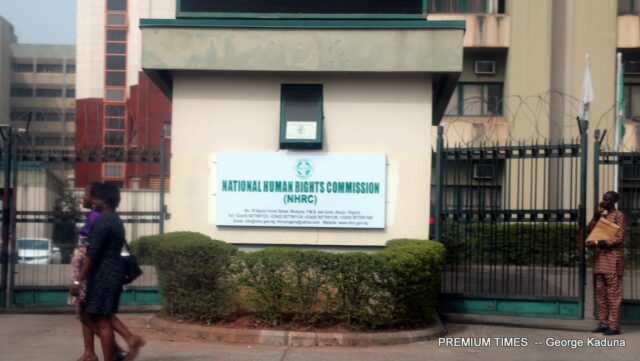
Nigeria’s human rights record is “very bad” and is “worse than [the] average in sub-Saharan Africa,” a new report by an international organisation has said.
The report was authored and released on Thursday by the Human Rights Measurement Initiative (HRMI), a New Zealand-based organisation measuring the human rights performance of countries.
“Compared with other countries in Sub-Saharan Africa, Nigeria is performing worse than average,” the report said, confirming what observers and rights advocates are saying about the Nigerian state’s execrable human rights record and the increasingly dismal daily experience of Nigerians.
In the report, HRMI said Nigeria’s quality of life scores are generally very low, all falling in the ‘very bad’ range, showing that successive governments have not met their human rights obligations to their people.
HRMI’s quality of life scores measure how well a country is converting its resources into good outcomes for its people.
“Nigeria has the financial resources to do much better,” the researchers said. “Every single one of Nigeria’s component scores is in the ‘very bad’ range, which means that many millions of people are suffering unnecessarily when the country could afford to be ensuring better living conditions.”
Nigeria scored 62.7 per cent for the right to food; 47.9 per cent for the right to health; 37.1 per cent for the right to housing and 40.04 per cent for the right to work.
The worst score is for the right to quality education, at only 5.5 per cent, data shows.
The very poor score in education may not be surprising to most observers as Nigeria currently has the highest number of out-of-school children in the world, over 10 million, according to UNICEF.
For all four rights, Nigeria performed worse than most countries in Sub-Saharan Africa, the HRMI report stated.
“There is no reason for any country to score this low,” HRMI said. “Not only are countries scoring below 75 per cent failing to put in place the kinds of structures and policies that help people claim the right concerned, but the structures and policies in place most likely prevent many people from claiming their rights.”
Methodology
HRMI developed two different measurement methodologies for two key sets of rights: economic and social rights, and civil and political rights.
For civil and political rights, where violations often take place in secret and reporting is inconsistent across different countries, the organisation said it uses a multilingual expert survey approach to get information directly from the human rights experts who are monitoring events in each country.
But for economic and social rights, HRMI draws on national statistics produced by governments and international agencies, and uses the Social and Economic Rights Fulfillment (SERF) Index methodology to compare countries’ human rights outcomes with their income, to capture the concept of ‘progressive realisation’.
Findings of the report convey a picture at odds with the human rights record Nigeria’s government repeatedly claimed has improved.
Eerily similar in tone to last year’s report, the 2023 data highlights the seriousness of the Nigerian situation, captured by the citizens’ and observers’ persistent concern about heightened impunity and the continued disjuncture between democratic transition and democratic norms.
The report concluded that the biggest improvement for Nigeria is in the right to child health where there have been steady improvements over the last 20 years.







